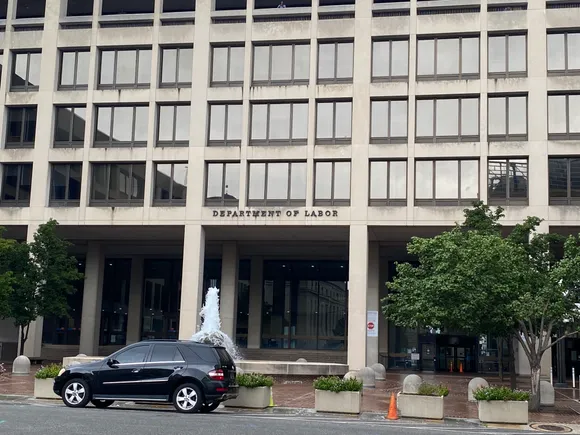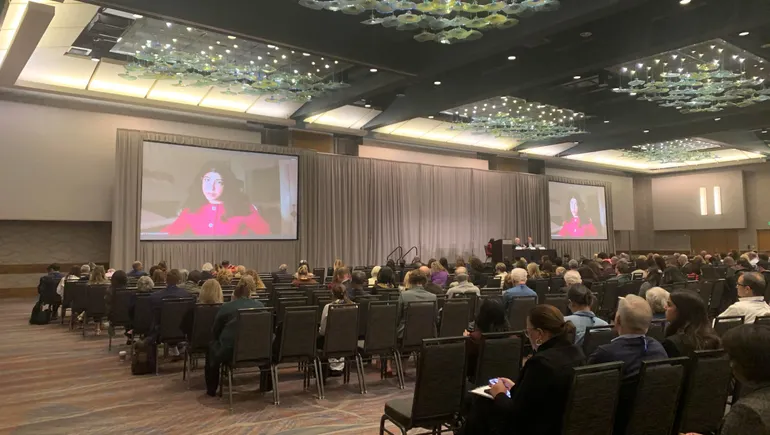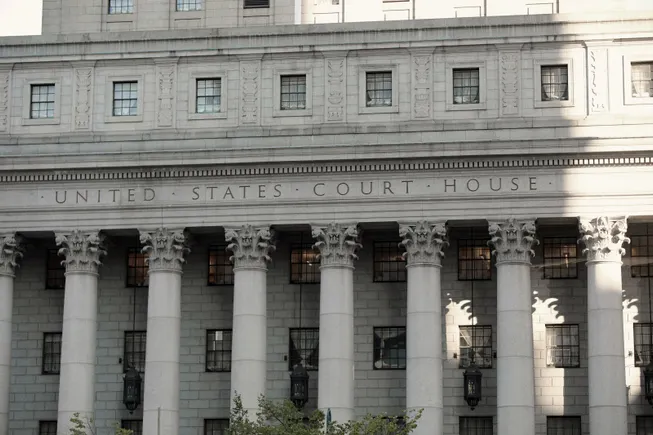Dive Brief:
- The U.S. Department of Labor on Friday confirmed a “right-sizing” of the Office of Federal Contract Compliance Programs, in line with a planned restructuring of the agency. Some 200 OFCCP employees — a significant portion of employees placed on administrative leave — accepted voluntary resignation or early retirement, according to DOL.
- OFCCP Director Catherine Eschbach issued an internal notice of the decision, which affected workers at five of the agency’s six regional offices, according to Bloomberg Law. Eschbach attributed the leave announcement to a “significantly reduced scope of mission” for OFCCP, which oversees enforcement of anti-discrimination laws that apply to federal contractors, the outlet reported.
- The news comes amid a broader shake-up at OFCCP by President Donald Trump, who issued an executive order in January directing the agency to stop promoting diversity, stop holding contractors and subcontractors responsible for taking affirmative action and stop allowing them to “engage in workforce balancing” on the basis of protected characteristics such as race and sex.
Dive Insight:
Civil rights advocacy groups and lawmakers characterized the administrative leave decision as a serious blow to U.S. civil rights enforcement. Deborah Vagins, national campaign director at Equal Rights Advocates, said in an April 17 press release that Eschbach’s announcement would effectively shutter almost all of OFCCP’s regional offices.
“OFCCP is tasked with monitoring and enforcing civil rights protections for employees of federal contractors, which make up approximately one-fifth of the American workforce,” Vagins said. “By gutting this office and halting investigations, compliance reviews, and preventative guidance, this administration has created a dangerous accountability vacuum.”
According to the Labor Department, the agency previously maintained 55 physical offices for its workforce of fewer than 500 employees. The agency said one of the offices affected by the leave decision, located in Guam, sat vacant prior to the decision.
Approximately 200 employees accepted a voluntary deferred resignation offer from the Trump administration, accounting for a significant portion of employees who were placed on administrative leave, according to DOL. The agency did not provide the exact number of employees who were placed on leave.
“This planned restructuring will ensure OFCCP can fulfill its core statutory responsibilities while ending prior practices that promoted discriminatory DEI,” a DOL spokesperson said in an email. “Our nation’s nondiscrimination laws continue to be fully enforced by agencies with the appropriate authority.”
Separately, Federal News Network reported last month that DOL planned to cut staffing at OFCCP by 90%, citing an internal DOL memo.
In addition to directing OFCCP to cease some of its regulatory functions, Trump’s Jan. 21 executive order revoked a 1965 order signed by former President Lyndon Johnson prohibiting federal contractors from discriminating against employees and job applicants on the basis of certain protected characteristics. Trump’s broader order faces at least two ongoing legal challenges, one in Maryland and the other in Illinois.
Congressional Democrats sent a letter to Secretary of Labor Lori Chavez-DeRemer on April 11 criticizing planned staffing cuts and office closures at OFCCP, stating that the plans would leave workers “vulnerable to discrimination.” The letter noted that OFCCP had 317 investigators as of mid-February to conduct investigations of organizations employing some 3.6 million federal contractors.
In an interview with HR Dive, Vagins said that employers must nonetheless continue to comply with civil rights laws such as Title VII of the 1964 Civil Rights Act. She noted that Trump’s executive order did not address certain areas within OFCCP’s purview, such as anti-discrimination provisions for veterans and people with disabilities, and that employees of federal contractors may continue to bring legal challenges against their employers despite enforcement cuts.
“Our civil rights laws are still in place,” Vagins said, and federal contractors “still must comply with them.”






Leave a Reply